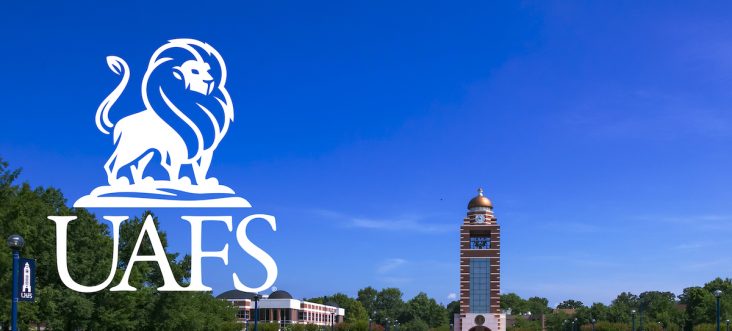Donation from Babb family will support paid internships for UAFS students
by November 30, 2023 6:07 pm 586 views

A $1 million gift from Doug and Kathy Babb will allow more University of Arkansas at Fort Smith (UAFS) students the chance to have a paid internship while working toward their degrees.
UAFS Chancellor Terisa Riley told the University of Arkansas Board of Trustees during their November meeting, which was held at UAFS, that Doug and Kathy Babb committed $1 million for paid internships and apprenticeships for UAFS students.
The Doug and Kathy Babb Premier Internship Endowment will match employer contributions so students can benefit from hands-on practice and real-world experience as they approach entering their careers.
Students in any degree program at UAFS can potentially complete an internship (either for credit or not) and get experience in their field of study. While some degree programs require internships and some do not, Some degree programs require an internship, some do not, Susan Krafft, executive director of the Babb Center for Career Services, said the center will assist any student who wishes to get valuable hands-on learning.
The opportunity for paid internships is vital to college students, many of whom hold jobs while they attend classes full-time and lack the resources to take on even more responsibility, Kraft said.
“We have many students who cannot afford to work without pay, even if they’re getting academic credit, especially since they have to pay tuition for those credit hours,” Krafft said. “Expecting a large population of students who are first-generation and Pell grant-eligible to take an unpaid internship is just not realistic. It eliminates outstanding, smart, skilled students from even being considered for an unpaid opportunity.”
Doug Babb, who with his wife Kathy endowed the Babb Center for Career Services, has a special affinity for those students since he was once one of them. When Babb taught a leadership class in the College of Business and Industry, he saw himself in his students.
“I realized that these people who were one of the first (in their family) to attend college, that they were working their way through college,” Babb said. “They were putting themselves through school and (had to) balance work, family, education.”
The Babbs endowed the Babb Center for Career Services to help students prepare not just for the work of their careers but also for soft skills, everything from offering a firm handshake to dressing professionally to arriving on time for work. The Babb Center for Career Services provides career education programs to students and alumni to develop workforce ready graduates with professional skills and connects students with employers to gain experience in their field of study.
The new donation will make internships reachable for more students.Signature internships will support students who intern with “strategic partners and key employers.” The university will match pay per hour made by the employer, who might otherwise be able to offer only an unpaid position.
The center utilizes Lions CareerLink (Symplicity) as its online job board, Kraft said, adding this is where it connects students with opportunities ranging from part-time, full-time, and internships. Employers already have the ability to post jobs and internships on this platform to recruit students. Kraft said they hope to continue growing this platform and are putting the mechanics in place to track learning outcomes, feedback from employers and students, and hours completed in an internship.
“When the endowment is fully funded, we’ll have the logistics in place to compensate students for their work in cooperation with employers, and we’ll manage that payment based on several factors. That could look like a match from a for-profit business or it could be paying a stipend to students who work for a non-profit organization,” Kraft said.
A portion of the endowment also will support students who participate in project-based, short-term micro-internships at no cost to the hiring partner. Because micro-internships are project-based opportunities, instead of working for an organization an entire semester, students complete a short-term project. For example, an organization might just need their website updated or have a large data entry project, Kraft said. The micro-internship could be a 40-hour project where the center would pay a stipend upon completion. Micro-internships provide flexibility for both the student and the employer since it is a one-time project, she said.
“Students get real-world experience in their field of study, which is a recurring theme in our Strategic Plan and our mission,” Krafft said.
